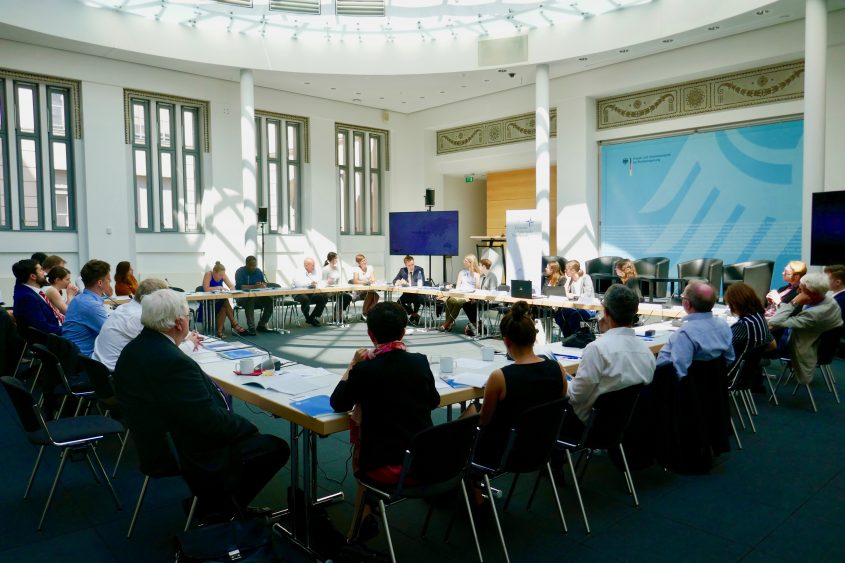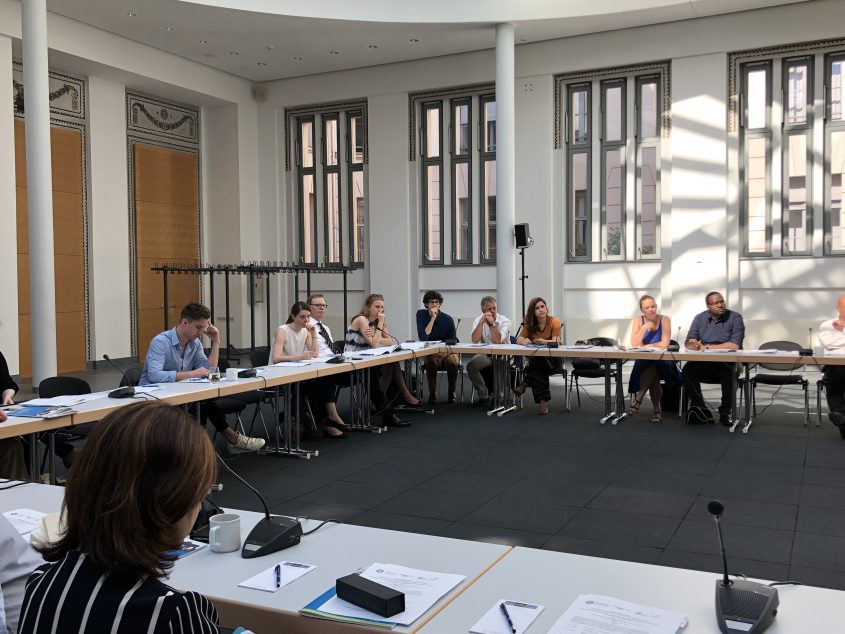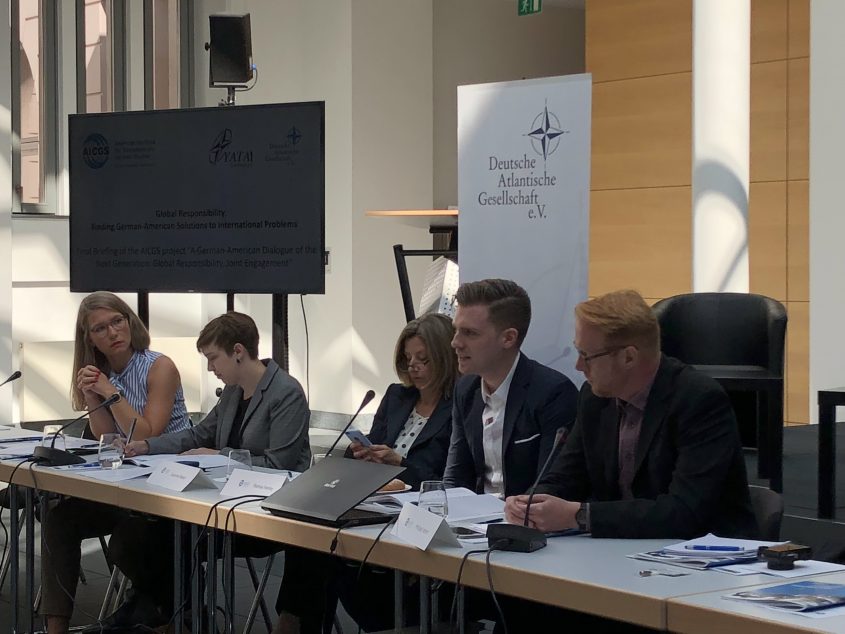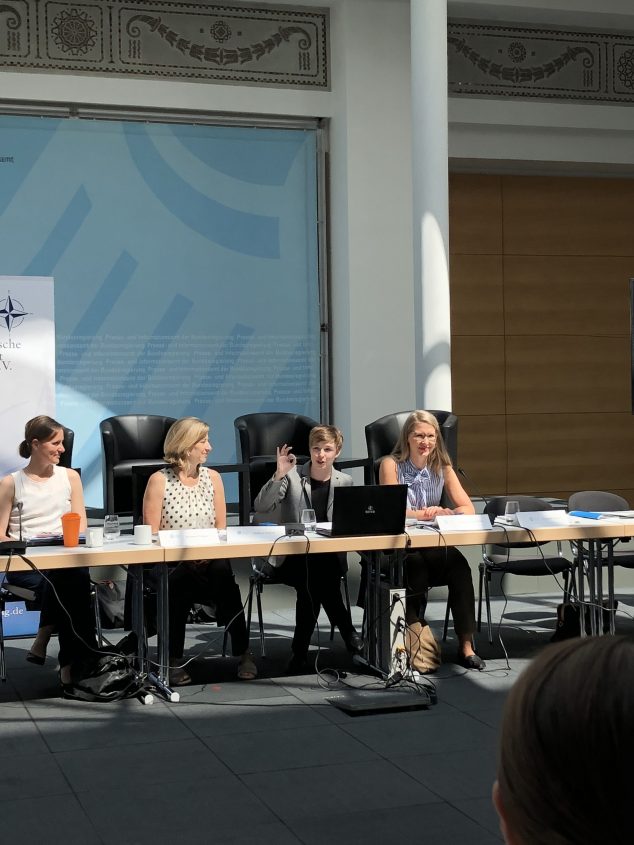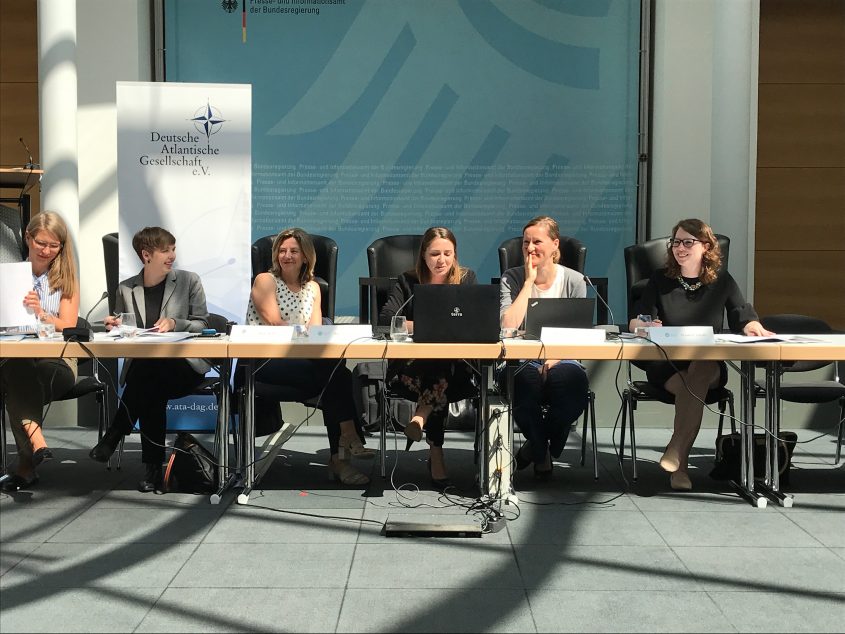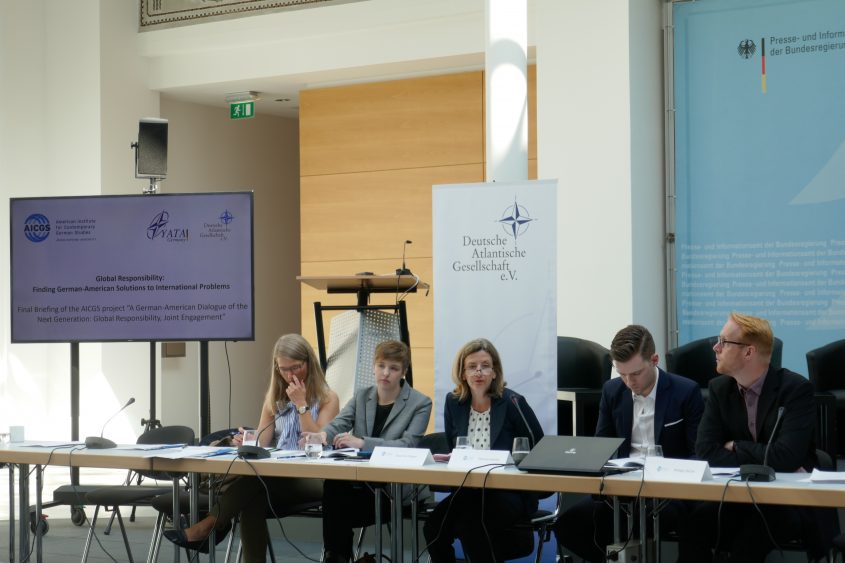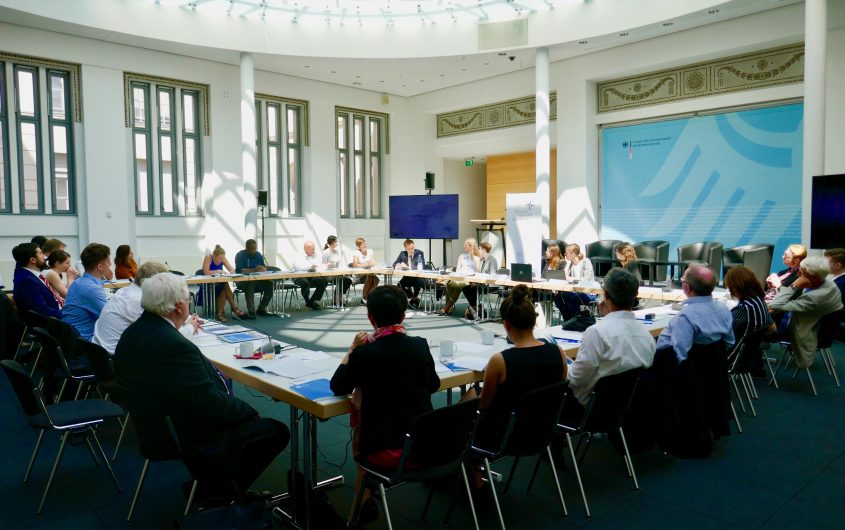
AICGS
Global Responsibility
Finding German-American Solutions to International Problems
Final Briefing of the AGI project “A German-American Dialogue of the Next Generation: Global Responsibility, Joint Engagement”
On June 18, 2019, participants of the AGI project, “A German-American Dialogue of the Next Generation: Global Responsibility, Joint Engagement” presented their final briefing to a German audience. The presenters were primarily authors of the project’s final report, Cooperation or Division? The German-American Relationship in a Changing World. The briefing covered topics discussed by three working groups on Foreign & Domestic policy; Society, Culture & Politics; and Geoeconomics.
This Briefing highlights the results of the participants’ work and presents their recommendations for strengthening the German-American relationship.
The purpose of the briefing was to offer new, innovative recommendations for how Germany and the United States could together tackle global challenges. One of the most pressing challenges for the transatlantic relationship is the nature of transatlanticism itself. Transatlantic actors, from government partners to civil society actors, must redefine the transatlantic relationship for the new challenges of the twenty-first century. This means that transatlanticists must clearly define transatlantic values and the liberal democratic order. Norms must be adhered to; otherwise, the transatlantic relationship is under threat. On a more concrete level, governments must become more technologically savvy in order to avoid exploitation of Western technological capabilities. Legislators should confront their own technological illiteracy; offices of technology assessment should be revamped; the private sector should be looped in; and Germany and the United States should deepen transatlantic best practices sharing.
Dialogue, exchange, and cooperation at the civil society level are crucial to rebalancing the relationship between Germany and the United States. Civil society should reinforce bilateral relations, refocus on joint values, and reconsider global responsibility. These goals can be achieved through developing a new narrative for transatlantic relations; increasing youth exchanges between the U.S. and Germany; tackling shrinking civic spaces; prioritizing global aid effectiveness; and partnering on art restitution. Civil society should also work to particularly engage immigrant organizations and other minority groups to better reflect demographics of German and American societies. Civil society actors should particularly work to be more inclusive of minorities and immigrants. This will lead to a more robust, intersectional, and innovative relationship reflective of German and American societies.
The world’s economies are becoming increasingly digitalized, which has an impact on not just the economic landscape, but on society and security as well. The impact of digitalization is deep; it affects how companies and industries behave and gives rise to new goods and sectors. Its breadth has impact across the transatlantic relationship in the public and private sectors and intersects with other challenges. Germany and the United States should leverage previous joint engagement in trade and investment to set rules of the road for digital economies; create regulatory dialogue to avoid balkanization of cyberspace; and approach 5G as a multifaceted issue. Digitalization and automation will also have important impacts for the future of work and employment. Employers, educators, and workers must adapt to new technologies and stimulate innovation to everyone’s benefit. This can be achieved through addressing geographic disparities in job availability, developing alliances between stakeholders, reevaluating needed skills and qualifications, and alleviating structural imbalances in profit distribution and gender imbalances.
Across the three program areas, themes of redefining the transatlantic narrative, leveraging previous structures to tackle new challenges, and including new transatlantic voices in debates emerged. Read the participants’ full list of recommendations here, and the full final report here.
Agenda
- 9:00 am
Registration and Light Breakfast
- 9:30 am
Introduction
Susanne Dieper, Director of Programs and Grants, AICGS - 9:45 am
Reflect, Redefine, Renew: Priorities for Transatlantic Relations - Foreign and Domestic Policy Group
Presentations of the recommendations and discussion
Thomas Hanley, Global Public Policy Institute (GPPi), Berlin
Philipp Stelzel, Duquesne University, Pittsburgh, PA - 10:30 am
Civil Society in a World of Challenge and Change- Society, Culture, and Politics Group
Presentations of the recommendations and discussion
Anne Jenichen, Aston University, Birmingham, UK
Danielle Piatkiewicz, The German Marshall Fund of the United States, Washington, DC
- 11:15 am
Coffee Break
- 11:30 am
Trade, Technology, and Human Capital: The United States and Germany in a Contested Global Economy - Geoeconomics Group
Presentations of the recommendations and discussion:
Melissa Griffith, University of California, Berkeley
Henrike Lindemann, Bundesministerium für Wirtschaft und Energie, Berlin
- 12:30 pm
Luncheon



